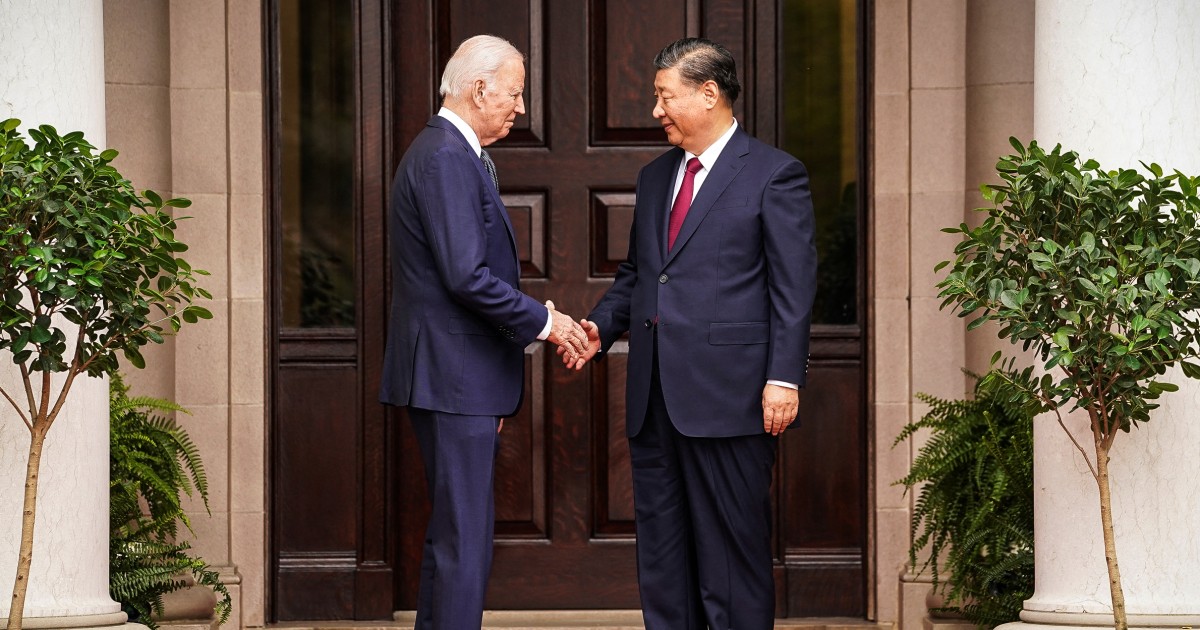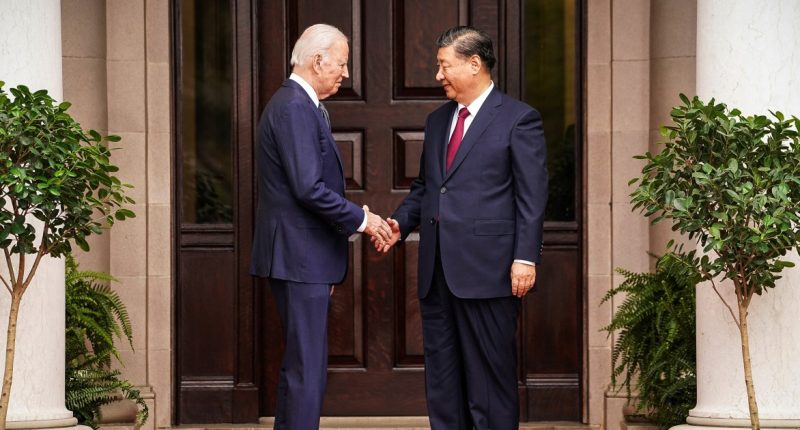
Nearly a month after President Joe Biden announced that he and Chinese President Xi Jinping had agreed to resume direct communications between U.S. and Chinese military commanders, U.S. defense officials have repeatedly tried to reach their Chinese counterparts but not received any responses, according to three senior U.S. officials.
Biden touted an agreement to restore direct military communications, or a hotline, after more than a year at a Nov. 16 news conference after he met with Chinese President Xi Jinping in San Francisco. The resumption of those communications was one of the signature achievements cited by U.S. officials.
Biden called the agreement “critically important” and evidence that he and Xi “made real progress,” saying, “We’re back to direct, open, clear, direct communications.”
Since then, U.S. military officials have reached out to their Chinese counterparts to re-establish a decades-old military communications channel and to schedule talks on maritime safety, officials said. Administration officials also touted the resumption of the Military Maritime Consultative Agreement as a critical achievement out of Biden’s meeting with Xi.
Two senior U.S. defense officials said that they remain hopeful that maritime safety talks will take place at some point next year but that nothing has been scheduled yet.
China broke off direct military contacts with U.S. forces in the wake of then-House Speaker Nancy Pelosi’s controversial visit in August 2022 to Taiwan, a self-ruling island democracy that Beijing claims as its territory.
A spokesman for the Chinese National Defense Ministry confirmed at a news conference on Nov. 30 that the two presidents had agreed to resume direct military-to-military contacts.
But in response to a question, the spokesman, Wu Qian, noted continuing Chinese concerns about U.S. military activities in Taiwan and the South China Sea.
“Equality and respect are part of the correct way for China and the United States to get along with each other and are also the basic prerequisite for developing military-to-military relations,” he said.
Wu added that China hoped the U.S. will create a “favorable atmosphere and conditions for the sound and steady development of military-to-military relations.”
Several days later, an article in the state-controlled Chinese media quoted a professor who criticized a White House spokesman’s comment two days after the summit that the U.S. would continue selling arms to Taiwan.
“This latest statement once again proves the inconsistency in U.S. positions, actions, and statements, inevitably undermining mutual trust in Sino-U.S. strategic relations and hindering the recovery of military relations,” the professor said.
A Defense Department spokesperson stressed the importance Defense Secretary Lloyd Austin and other senior U.S. military leaders place on military-to-military communications with China and said they stand ready to participate.
“There is no substitute for substantive conversations between defense and military leaders, and open lines of communication are essential to ensure competition does not veer into conflict,” the spokesperson said in a statement. “We’re committed to delivering on the President’s priority, and we’ll share more updates when we can.”
A senior U.S. official said that China has been “slow to move” and that the U.S. military at various levels has been unsuccessful in reaching Chinese commanders. “It’s not for lack of trying,” the official said.
U.S. officials have warned that a lack of communication between the American and Chinese militaries is dangerous. “That’s how accidents happen: misunderstandings,” Biden said in his remarks last month.
At the time, a U.S. official said senior military commanders would begin directly engaging with their Chinese peers. The official also said Austin would meet with his counterpart after China names a new defense minister. Li Shangfu, China’s former defense minister, was ousted in October, and Beijing has not announced a replacement.
Air Force Gen. Charles Q. Brown, the new chairman of the Joint Chiefs of Staff, sent a letter to his Chinese counterpart after he took over the position in September. A U.S. defense official said Brown has gotten no response since Biden’s announcement that military-to-military communications with China would resume.
Source: | This article originally belongs to Nbcnews.com









